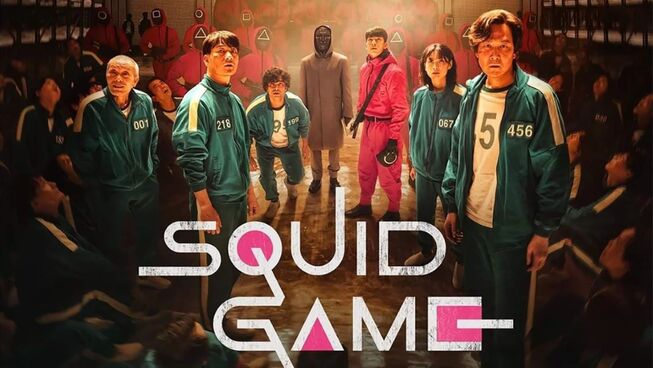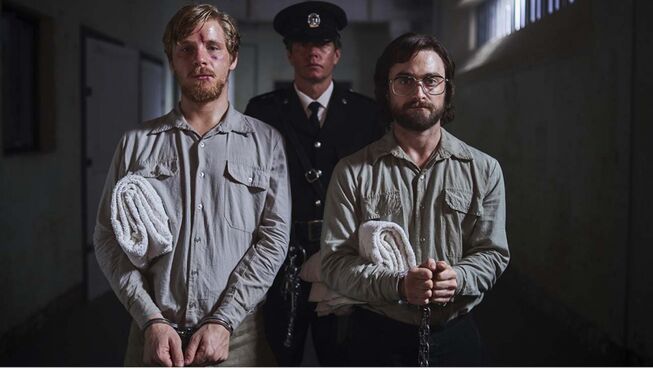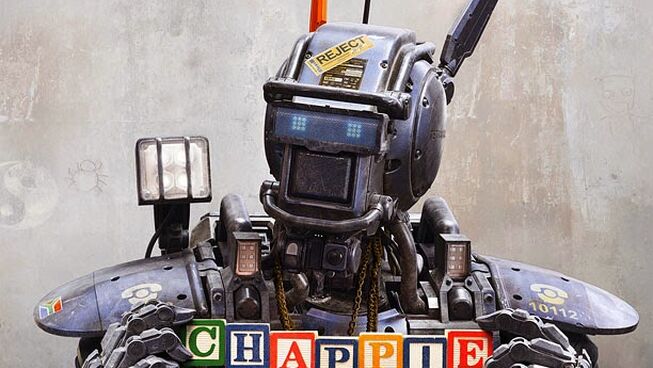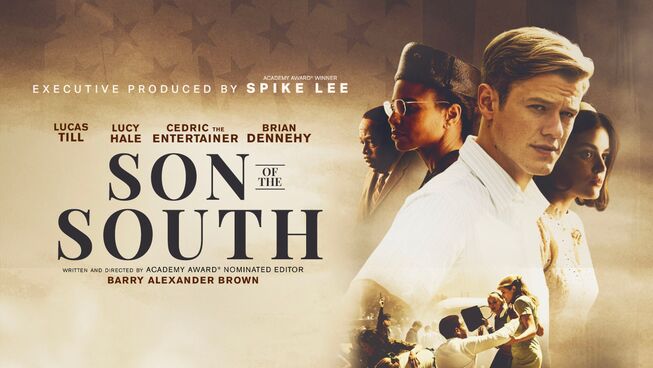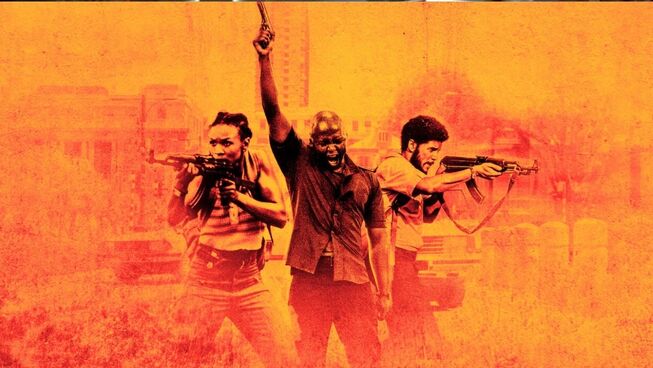
2.5 out of 5 stars
One experience that the Netflix phenomenon has provided for the world is how international films are regularly streamed into people’s lounge rooms. From the Korean series Squid Game to the recent release of Silverton Siege out of South Africa, audiences worldwide are getting flavour of cinema the world over. What adds to this global journey is that the siege was based on a true story that occurred in 1980.
Many people may know of the apartheid that defined the history of South Africa. At the same time, few may not be aware of sacrifice, many trying to see it come to an end. One of the organisations fighting for the end of the racial tyranny was uMkhonto weSizwe or the MK. Three members were staking out an oil depot to inflict damage on the facility until they realised they had been double-crossed. The police were waiting for them to make their move. Instead of going ahead with their plans, they choose to attempt a getaway which leads to a high-speed chase that leaves them trapped at the Volkskas Bank in Pretoria.
The freedom fighters find themselves trapped in the building with 25 hostages and few options. This leads to a desperate request for the immediate release of Nelson Mandela along with money and a helicopter. Their request set an international diplomatic situation in motion. It was credited with groups working on getting Mandela released from prison. Despite their noble intentions, their actions still leave them in a precarious situation that causes them to consider how they can ever escape this situation with their lives.
First-time director Mandla Dube captures the desperate tone of this trio’s futile attempt at making a statement against apartheid. Between the tense action and the perpetual sweat of gunfighters, the whole story seems to be bathed in dust, heat and perspiration. Even though it does become a stock-standard hostage narrative that capitalises on the true-life components. The names have been changed, and some internal elements were interpreted for dramatic tension. Still, the history seems to be represented well in amongst the action.
Thabo Rametsi, Arnold Vosloo, and Noxolo Dlamini all deliver admirable performances that manage to humanise these criminals. These portrayals make them out to be misunderstood as heroes opposed to the government's view of them as terrorists. While Arnold Vosloo as Johan Langerman manages to show how the police were attempting to do their best to thwart the stalemate before the military stepped into the scene. All the while, interpreting a historical and tragic tale that involved the desperate acts of humans wanting peace within their community. One that has been told before by other films, but Silverton Siege does provide a glimpse into the horrific results of apartheid and the desperate work of those who hoped to see it end.
REEL DIALOGUE: Christianity, racism and discrimination
Silverton Siege addresses topics that have been a part of the world’s social conscience since the beginning of mankind. Racial hatred and discrimination relate to something more profound than mere social injustices. These two issues are a deeply embedded insult to God and offence to the entirety of humanity.
It is not difficult for students of the Bible to see that racism runs counter to the message that can be read throughout its pages. The hatred depicted in this film and actions taken by many worldwide does not represent Christianity or Jesus’ message. He died on the cross to redeem men and women of every race, colour, and ethnic background. The Saviour of the world lives today to show the eternal value of all people, regardless of nationality, race, development, appearance, or ability. His followers must embrace this aspect of the Bible’s message and live accordingly, while sharing this truth with all of the world's people without prejudice.
Stop judging by mere appearances, but instead judge correctly. John 7:24
There is neither Jew nor Greek, there is neither slave nor free, there is no male and female, for you are all one in Christ Jesus. Galatians 3:28

